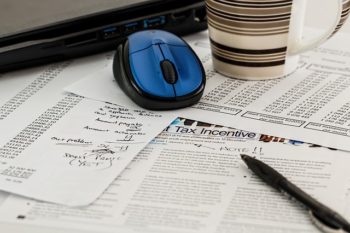
Most people know that filing for Chapter 7 bankruptcy will get rid of credit card debt and medical bills, however, many Californians are confused as to whether personal bankruptcy will discharge debts owed to the IRS or to the State of California.
Like many answers in the law, the answer is, it depends. Some tax debts are dischargeable in bankruptcy, others are not.
How to Get Your Tax Debts Cleared in Chapter 7
Let’s walk through the rules to give you some guidance — state and federal taxes will generally be subject to the same treatment. We’ve framed the discussion in terms of hurdles. Each of the hurdles below must be cleared before your tax debt will be eligible for discharge.
Note: Filing a tax return extension or seeking an offer in compromise are considered “tolling events,” which can lengthen some of the discharge deadlines mentioned below. If you have questions, it’s always best to talk to an experienced bankruptcy attorney.
See also: Do I Qualify for Chapter 7 Bankruptcy in California?
Hurdle #1: More Than Three Years Has Elapsed from Your Tax Due Date
If it has been more than three years since your taxes were due, you’ve passed the first hurdle to discharge. For example, if your 2014 taxes were due on April 15, 2015, that pushes back the discharge date for 2014 taxes to April 15, 2018. If you applied for an extension, the timeframe could be much later.
Hurdle #2: Your Tax Return Has Been Filed for More Than 2 Years
You may be beginning to notice a pattern here, and no, you’re not imagining it. The taxing authorities, both IRS and the State of California, don’t want to be blind-sided by your filing. They want to make sure they have ample time to get their collection process revved up before you have the right to discharge tax debt in bankruptcy. If they let you file late returns all at once and then turn around and file a Chapter 7 case the same day, they wouldn’t have time to evaluate your assets, your income, and the veracity of what you’ve claimed.
Mandating that your returns have to be filed for at least two years gives the tax man a good long time to make sure you’ve crossed all your t’s and dotted your i’s. If your tax returns have been filed for two years or more, you’ve cleared hurdle #2 on the path to shedding tax debt in bankruptcy.
Hurdle #3: Tax Debt Has Been Assessed for 240 Days Prior to Filing
IRS taxes are usually assessed within 6 weeks of the filing of the return; the states vary on when they issue assessments. The bottom line is that your tax debts must have been assessed for more than 240 days prior to the date of filing your bankruptcy case. If they have been, you’ve passed hurdle #3.
Hurdle #4: You Must Not Have Committed Fraud
If you fell behind on your taxes for legitimate reasons, you have nothing to worry about and will easily pass hurdle #4. But if you filed false tax returns or attempted to cheat the system in some other way, your tax debts are not eligible to be discharged. This one is really common sense. If you commit a fraud on the court, you don’t get a discharge. Pretty simple.
Can Chapter 13 bankruptcy help get rid of tax debt?
This article has focused on the treatment of tax debts in Chapter 7 bankruptcy. In a Chapter 13 case, priority tax debts —meaning tax debts that have been due for less than three years — are paid in full, usually minus penalties, through the life of the Chapter 13 repayment plan. Non-priority tax debts, or tax debts that are dischargeable in Chapter 7, are paid exactly like credit card debt and medical bills — according to the debtor’s disposable income, often at pennies on the dollar.
While a Chapter 13 case is in effect, a court-ordered injunction called the automatic stay will prevent the IRS or the State of California from initiating collection efforts or tacking on additional fees. Also applicable during the shorter Chapter 7 period, the automatic stay acts as a protective bubble that shields debtors from phone calls, lawsuits, foreclosure, or any other collection attack.
See also: Third Parties Trying to Take Advantage of Automatic Stay in Chapter 13 Bankruptcy
Determining if Bankruptcy is Right for You
Whether you choose to file Chapter 7 or Chapter 13 bankruptcy, or are undecided, you’ll want an experienced bankruptcy attorney at your side. Our attorneys have helped thousands of Los Angeles area residents get out of debt, either through bankruptcy or debt negotiation. Everyone’s financial situation is different — we can help you decide what’s right for you and give you the best outlook on your financial future. Contact us today for a free case evaluation.
See also:
